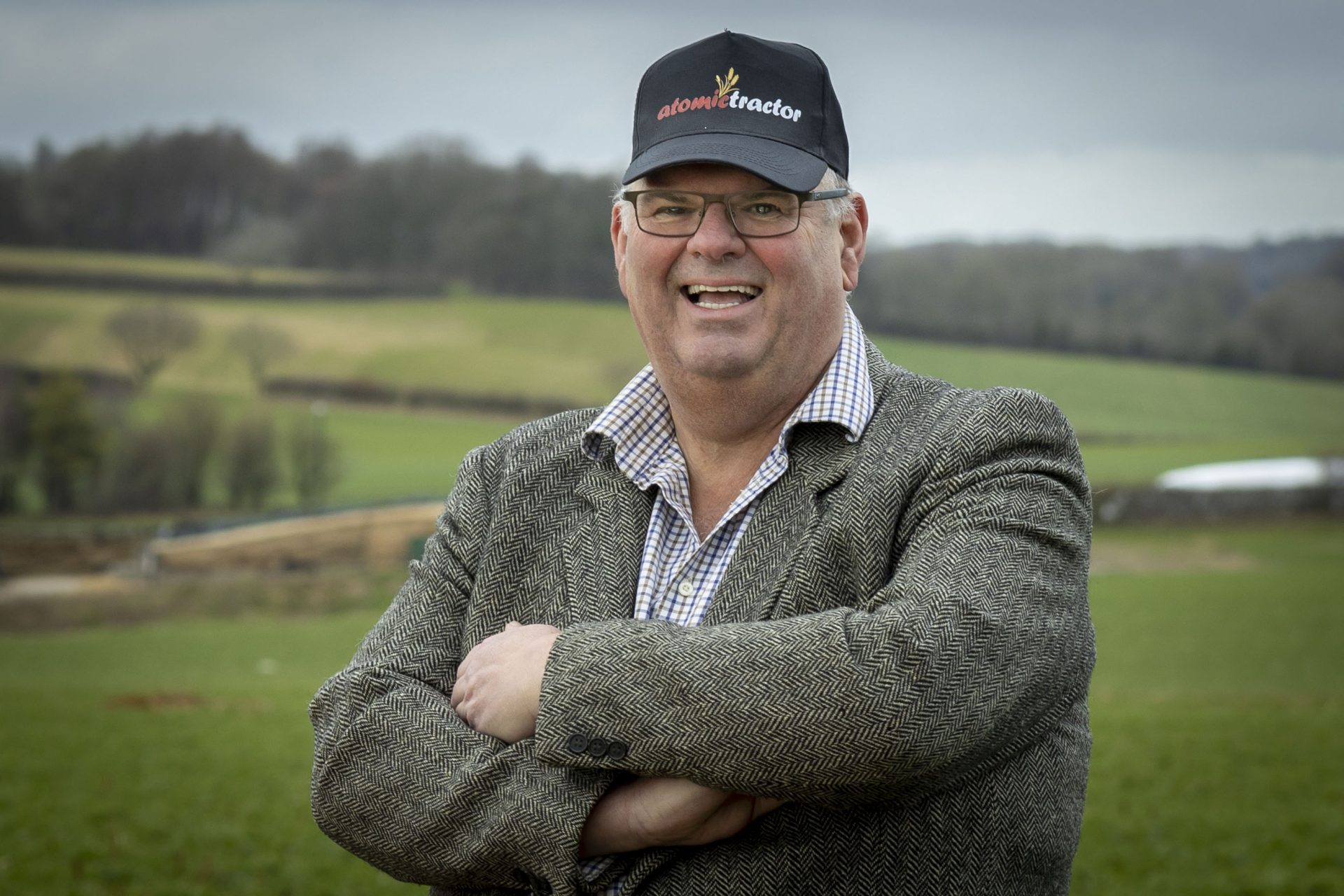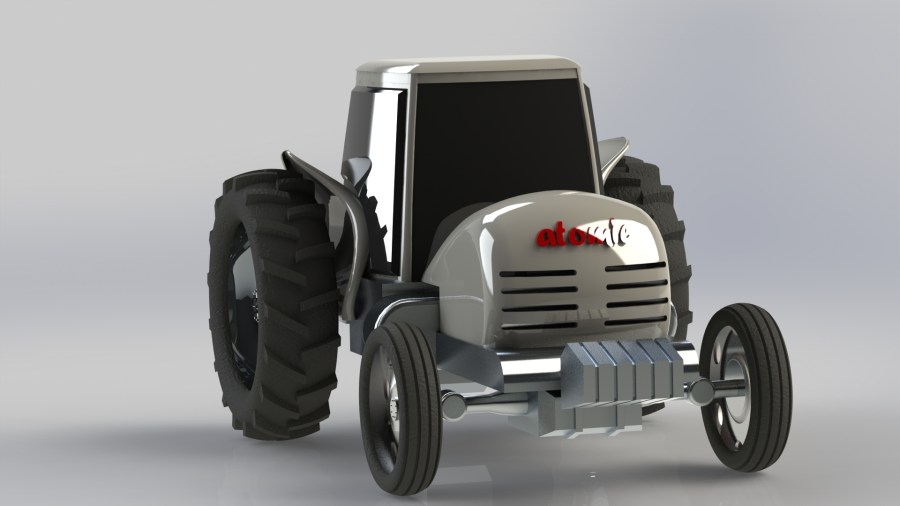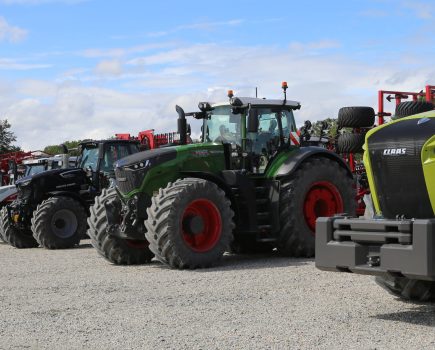British start-up Atomictractor has unveiled ambitious plans for a new zero-emissions power source for conventional farm tractors.
Providing a solution to those farmers seeking to eliminate diesel costs and future-proof their energy source, the hybrid concept is said to deliver high torque and power plus guaranteed long working hours with minimum downtime for recharge.
Based in Coventry, the company has completed a low carbon technology feasibility study with Aston University in Birmingham. “The precise nature of the technology remains confidential,” explains Atomictractor founder Campbell Scott. “However, it can be described as the application of the most appropriate solutions from the low-carbon world today and their integration into the specialised field of agriculture.”
The power unit is being designed and developed in the UK but will be suitable for global use across a wide range of agricultural power applications. The initial focus is on tractors up to 100kW (134hp diesel engine equivalent).

Campbell Scott is well-known in the farm machinery industry and has 30+ years of experience in the development and marketing of tractors and agricultural equipment. A former senior executive with AGCO and its brand Massey Ferguson, since leaving this role he has focused on the technology, public policy and commercial factors involved in the marketing of electric vehicles and how they can be applied to agriculture.
Another key element in the initiative will be a new electric-powered small tractor. “With this, we are taking our cue from the design principles of the famous Ferguson TE20 ‘Little Grey Fergie’ tractor, first produced in Coventry in 1946,” comments Mr Scott. “Like the TE20, this new futuristic model – called the E20 – is aimed at smaller farmers all over the world who need a simple, workmate machine to carry out multiple jobs on the farm.”
Partners are now being sought to move the project into the prototype and production phases. Developments will continue to be undertaken in collaboration with Aston University.
“We would ideally like to partner with an existing tractor manufacturer,” he continues. “There is a degree of engineering interface required between the new low-carbon drivetrain and the donor tractor and this can be best provided by the tractor maker.”
More details:





